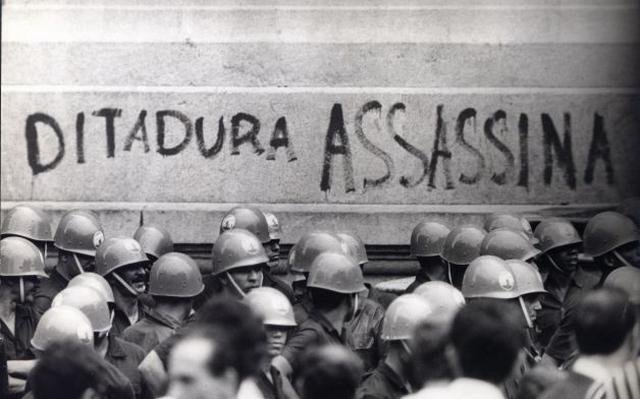American Congress holds session on opening archives of the dictatorship in Brazil
WBO Press Release
December 5, 2023
WBO and 15 other partner organizations request access to confidential documentation
Organizations and researchers highlight the importance of access to archives for the field of justice
This Tuesday, November 5th, the US Congress held a briefing (information session) on the declassification of American documents dealing with the 1964 coup and the following 21 years of dictatorship in Brazil.
The briefing featured presentations by many people including the president of the Board of Directors of the WBO (Washington Brazil Office) and professor of Brazilian history and culture at Brown University, James N. Green. In addition to Professor Green, political scientist Maria Hermínia Tavares, who is a researcher at Cebrap (Brazilian Center for Analysis and Planning) and Gabrielle Abreu, the coordinator of the Vladimir Herzog Institute also participated.
The office of Democratic Congresswoman Nydia Velásquez worked as a partner in this initiative, which saw the remote participation of 37 people, including American parliamentary advisors, researchers, academics and journalists from both countries.
The briefing is part of an effort that began on July 5th, with the sending of a letter signed by 16 organizations and 8 researchers to the President of the United States, asking for the release of the documents.
In her presentation, political scientist Maria Hermínia Tavares explained: “we, who work with historical documents, always know that archives can surprise us. The story is never completely told, as it is always possible that more information can show us a different perspective. In the case of the Brazil-USA relationship, which is so complex, the expectation is that each document can better illuminate the events, so that we can better understand what these issues were like – who spoke to whom, who did not get along with whom, who acted in what way. So, for any historian, this opening of the archives would be fundamental. Every researcher likes it when their ideas are challenged by documents. We like it when the documents tell us: ‘look, this wasn’t quite like you thought.”
Gabrielle Abreu contextualized the importance of declassifying these documents in a country where the 1979 Amnesty Law prevents history from being completely known and the protagonists of the coup and dictatorship from being held accountable, even with advances such as the creation of the Commission of the Dead and Missing in 1995, and the National Truth Commission in 2012.
“Removing the secrecy of documents about the dictatorship is something that would allow a deeper understanding of the facts and encourage the agenda of the movement for [history] and justice in Brazil, it would give impetus to the work of those who fight so that this history is never forgotten”, said Gabrielle Abreu.
“There are always elements to be revealed and we look forward to discovering new aspects of the history of the military regime. Furthermore, there is the right of all Brazilians to know their own history. Even though [these] are not documents produced by Brazil, they are documents that talk about the history of Brazil. These are records that concern each one of us. We have the right to memory and truth. There is a shared responsibility in this case.”
James N. Green highlighted that “there is discomfort in Brazil with the role that the USA played in this historical period. Therefore, revealing this past and showing these documents would demonstrate that the US is not afraid to reveal its history. Otherwise, people think there is something deliberately hidden.”

